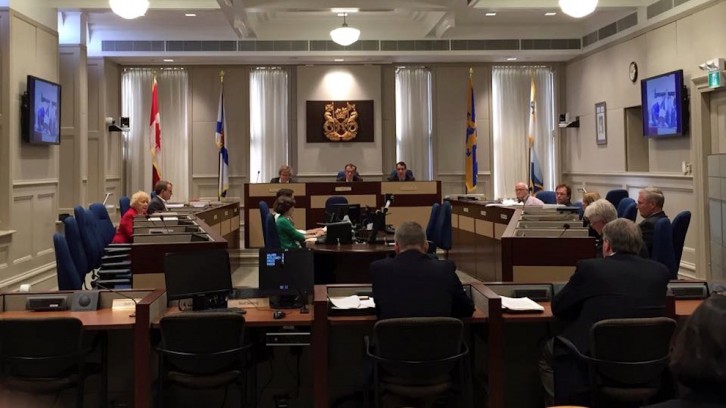City council
Transportation committee rejects accessible taxi recommendation
Consultant’s report proposed stopping the issuing of conventional taxi licences and replacing them with accessible ones.

caption
Transportation Standing Committee debating over the report's proposal.
caption
The Transportation Standing Committee debating over the report’s proposal at Halifax City Hall.Halifax’s transportation committee has rejected a consultant’s recommendation to increase the number of accessible cabs in the city.
A study commissioned by the Halifax Regional Municipality had recommended an increase of accessible taxi vans to help remove the current waiting list for conventional taxi licences.
However, Halifax’s transportation committee said it believes the report failed to identify any significant problem in the industry.
“Four out of five general users say there are enough taxis and four out of five disabled users say there are enough taxis. So they do not seem to be disadvantaged,” said Reg Rankin, councillor for Timberlea and Clayton Park West.
The report was produced by Halifax Global, a strategy and planning-focused consulting company, commissioned by the transportation committee to start and mediate discussions with the taxi industry.
The majority of taxi owners and operators argued that the recommendation to increase the number of accessible cabs would require them to replace conventional taxis with more costly accessible vans, according to the report.
Replacing conventional taxis with accessible vans would cost taxi owners and drivers around $20,000.
Halifax Global Inc. argued this concern was only a misunderstanding.
Taxi drivers said there is also simply no need for more accessible vehicles, especially vans, which can be too high for seniors and other groups to climb into.
“The overwhelming majority [of users] have limited physical abilities, but are not in a motorized wheelchair,” said Dave Buffet, president of the Halifax Taxi Drivers Association.
Buffet said there are 45 taxi cabs available for people in a motorized wheelchair, which is enough, as many people in a wheelchair do not call for a cab, but use the city’s Access-A-Bus service instead.
“You don’t need to add a number, but disperse them throughout the three zones — Halifax, Dartmouth and Sackville,” he added.
The only problem, he said, is that people are waiting for an extended period of time when requesting an accessible taxi to go from one zone to another.
Council did not receive any complaints from people using motorized wheelchairs on the issue, according to Buffet.
The current limit of 1,000 conventional taxi licences is needed to keep the balance between the numbers of conventionals and accessibles, by encouraging owners to enter the less-lucrative accessible vehicle business.
Rankin said 900 people are lined up on the waiting list for a conventional taxi licence because it’s where the market is. However, there is no lineup to get into accessible taxis.
“The purpose of the limitation is to make it harder for drivers who own a van from simply turning it into a cab, which was the case before the limitation took place,” said Buffet.
The limit aims to make sure that taxi drivers operate within an enforced safe and responsible code of ethics.
“This is not to say this is the end of the debate,” said Buffet. “In time, there probably will be an accessible taxi that is close to the ground, but that is not a reality in Halifax right now.”

